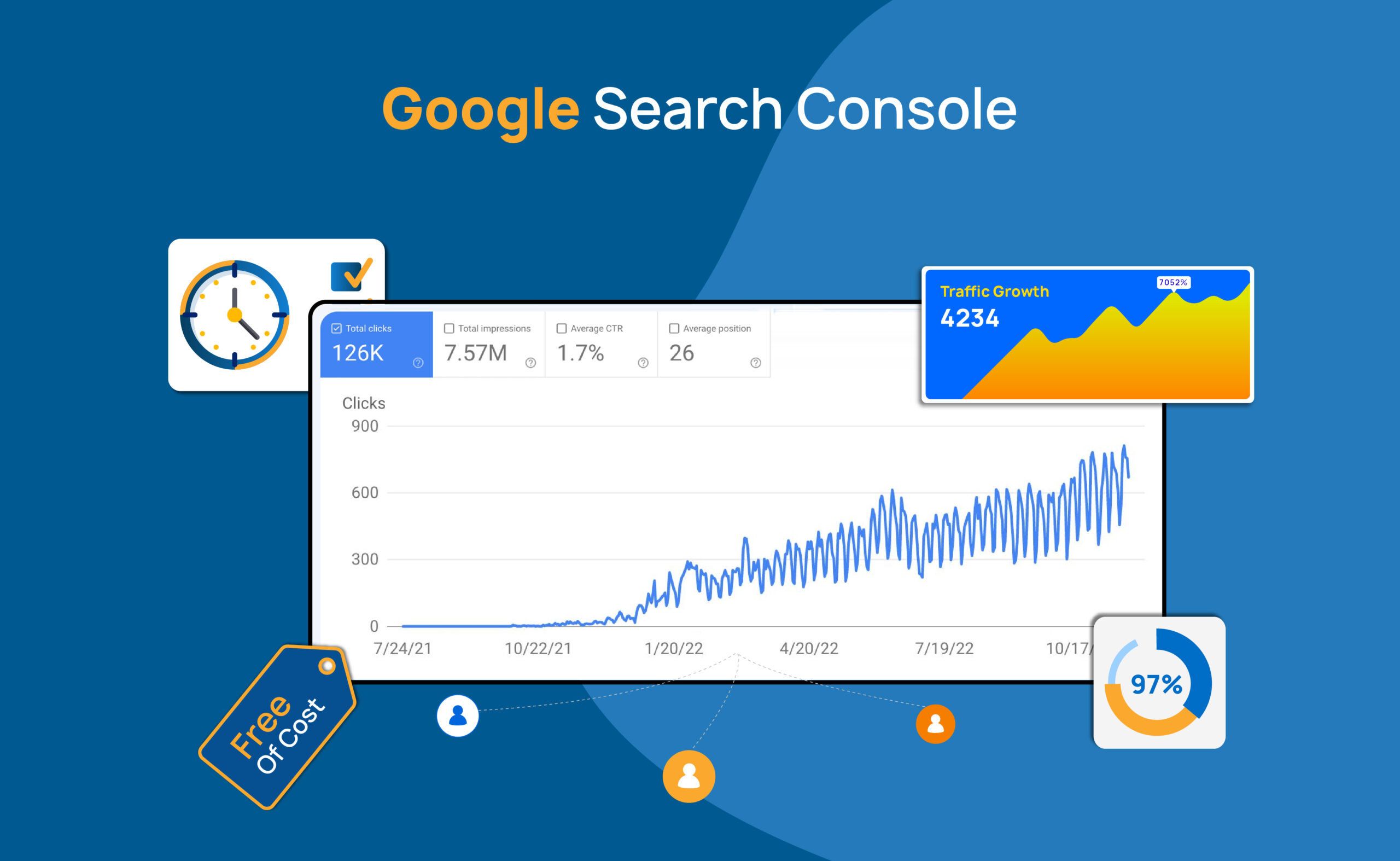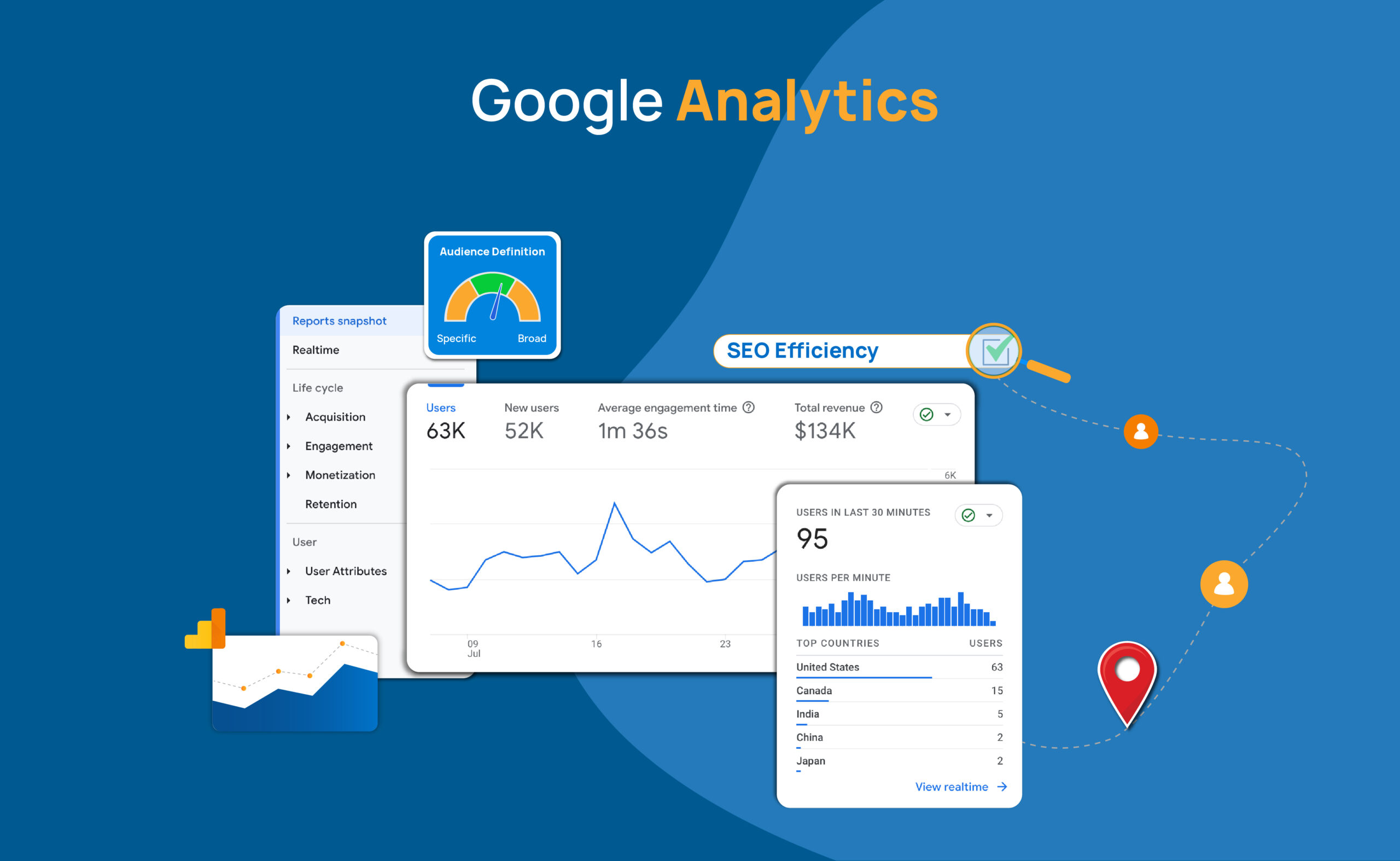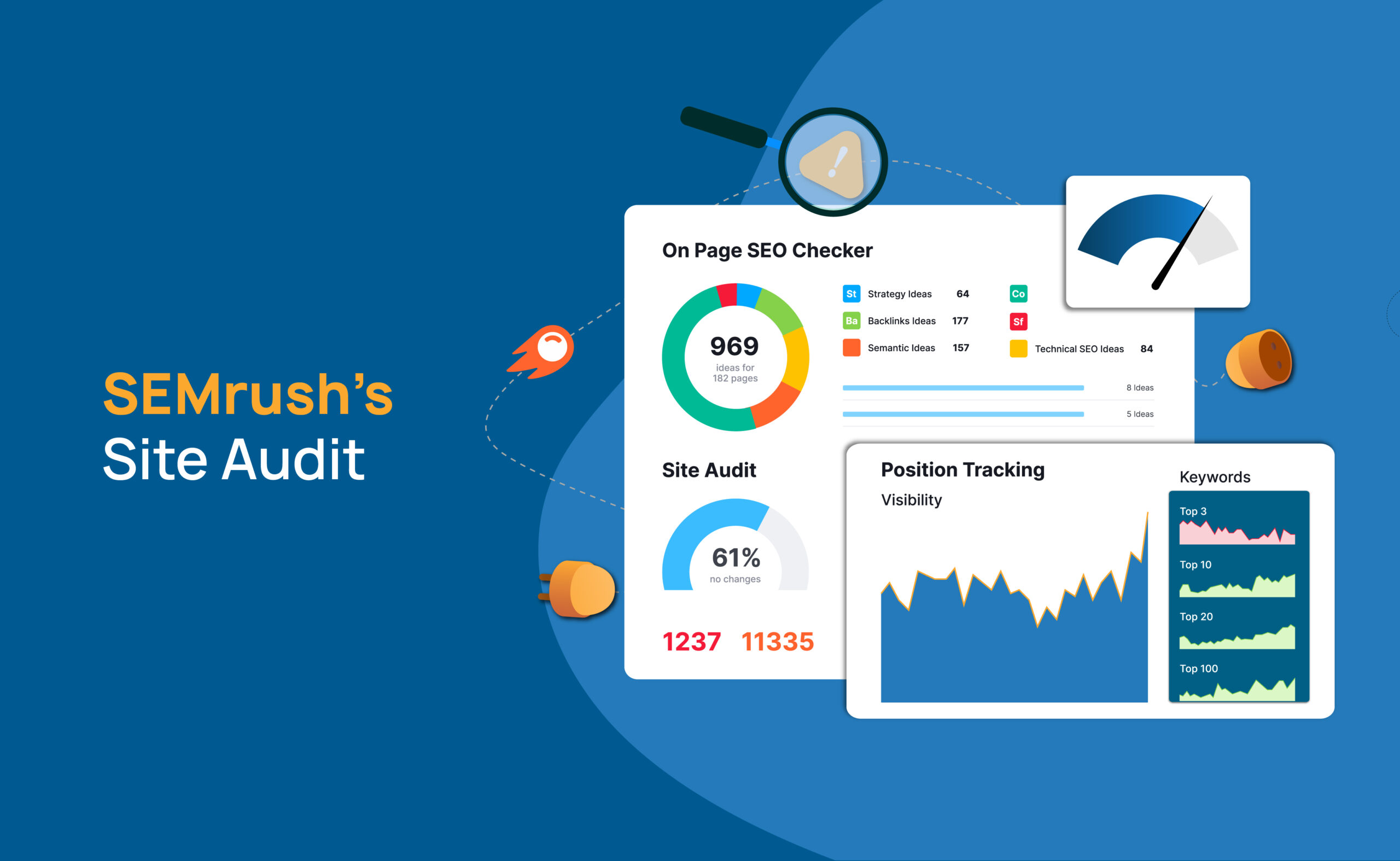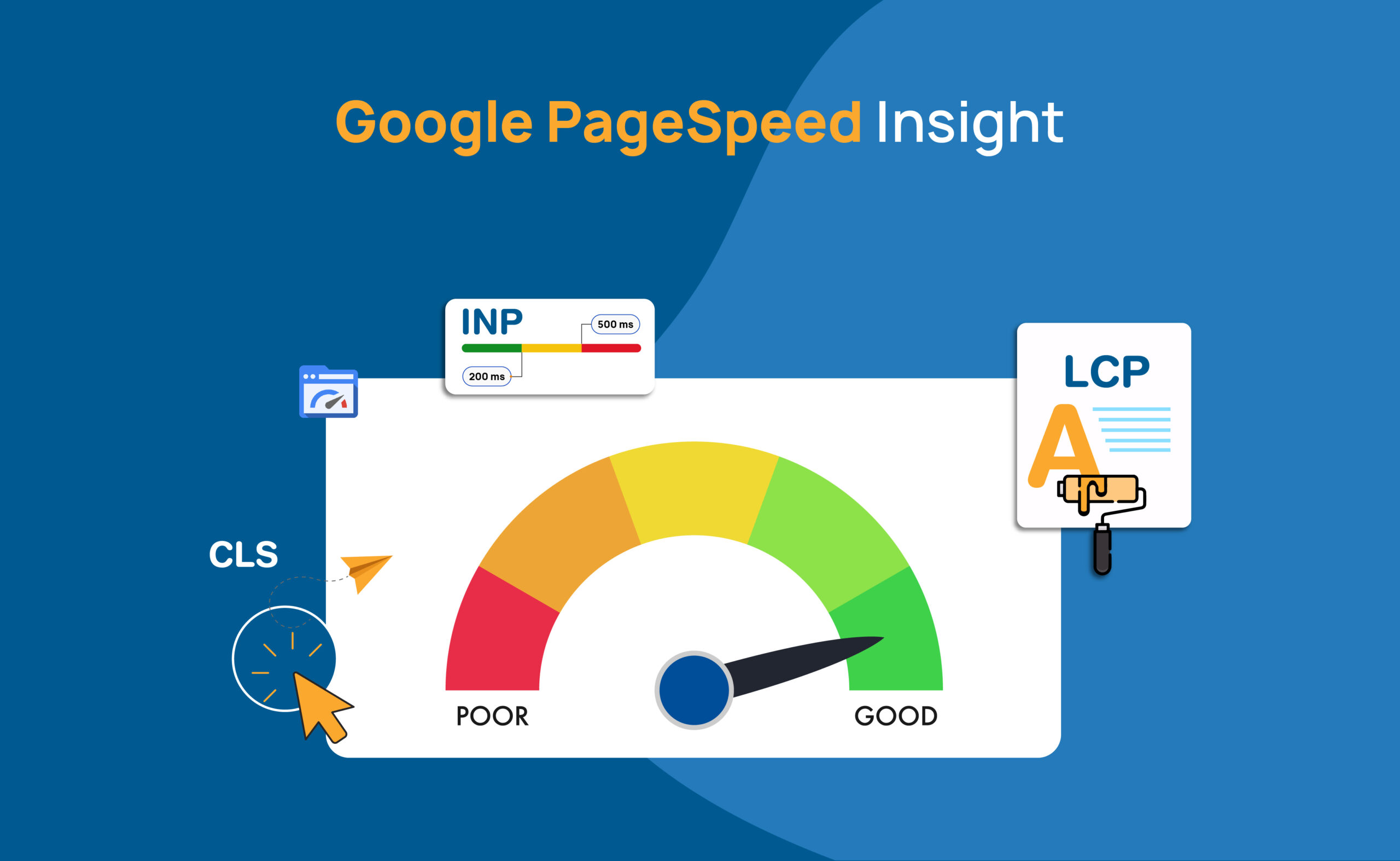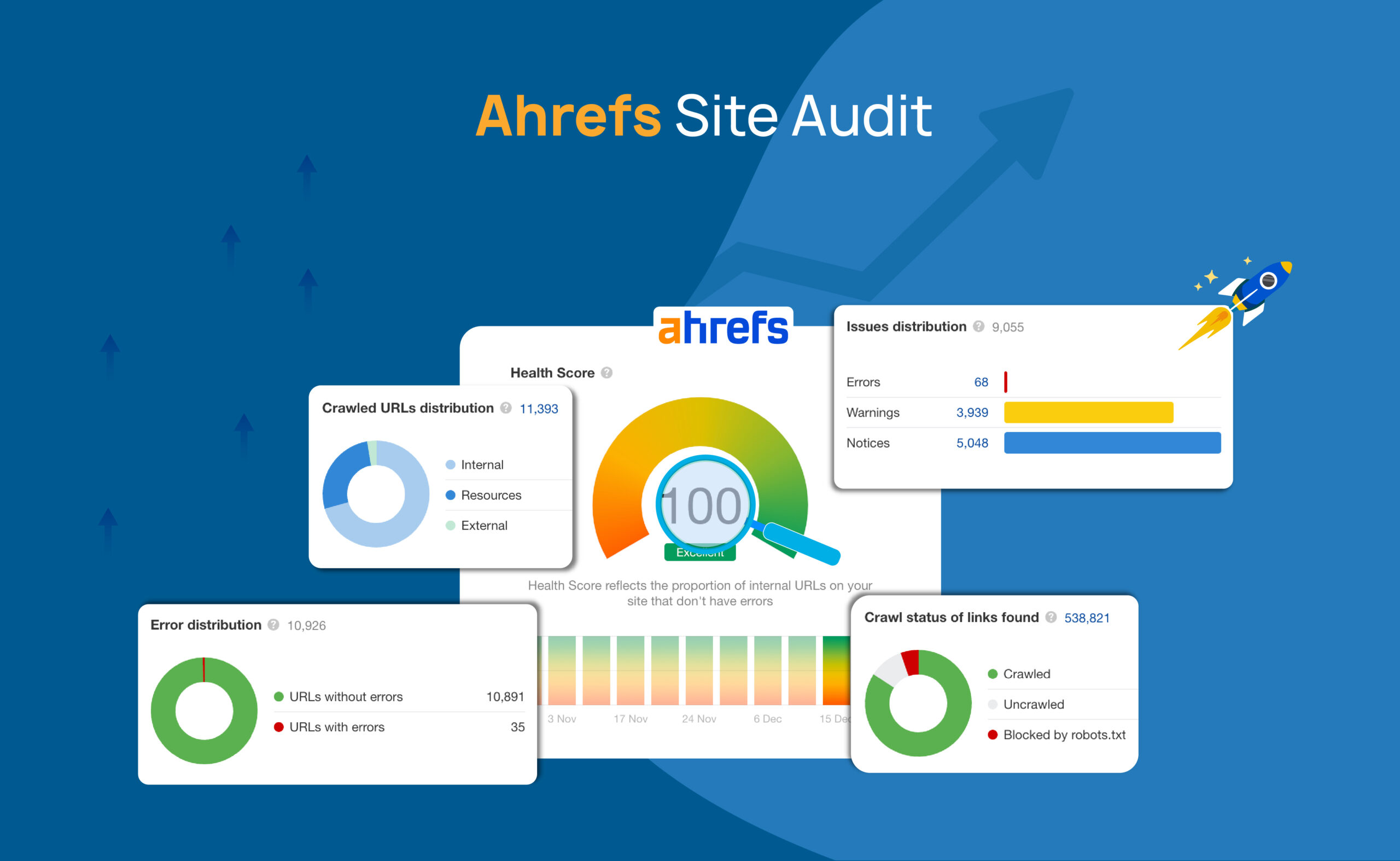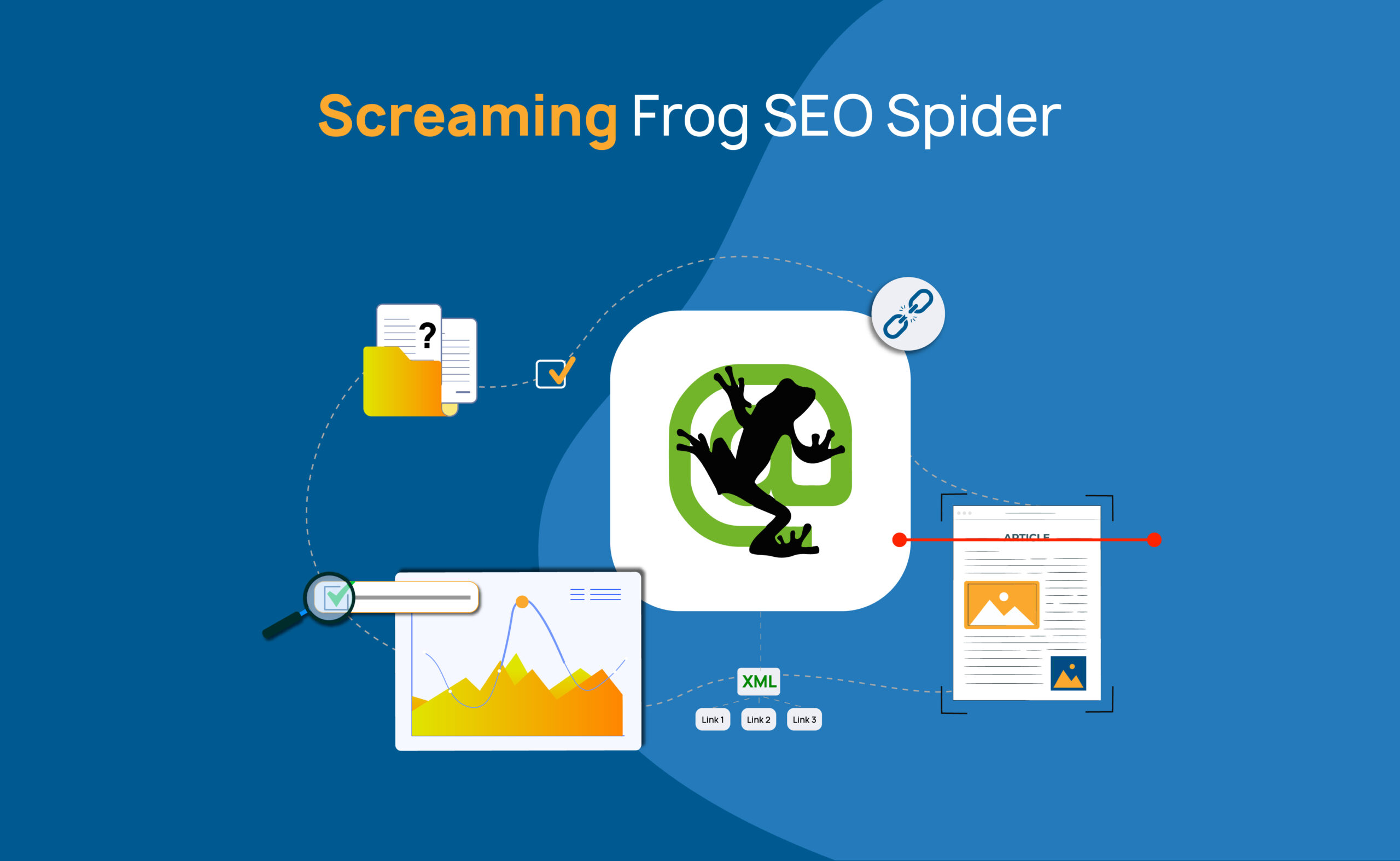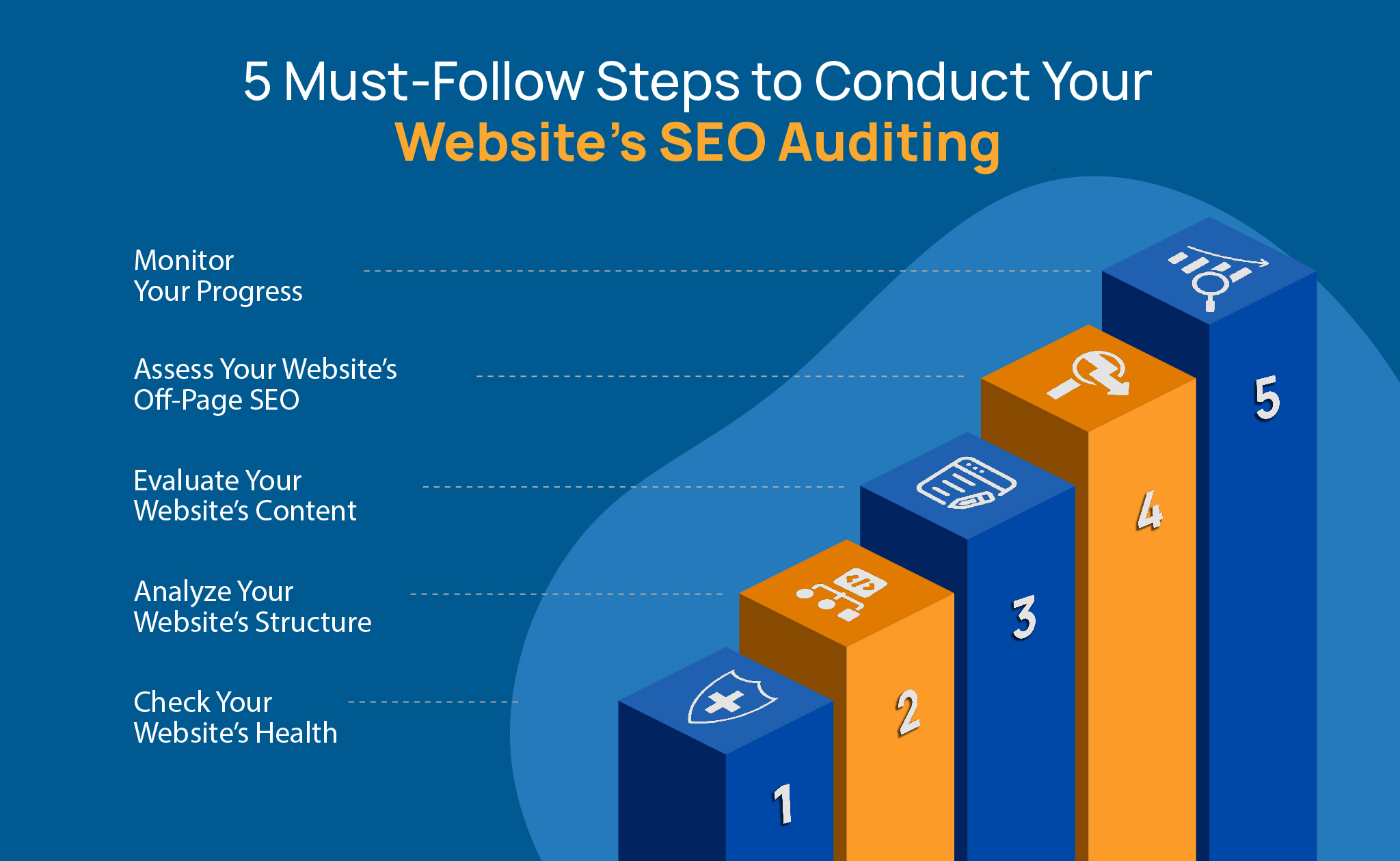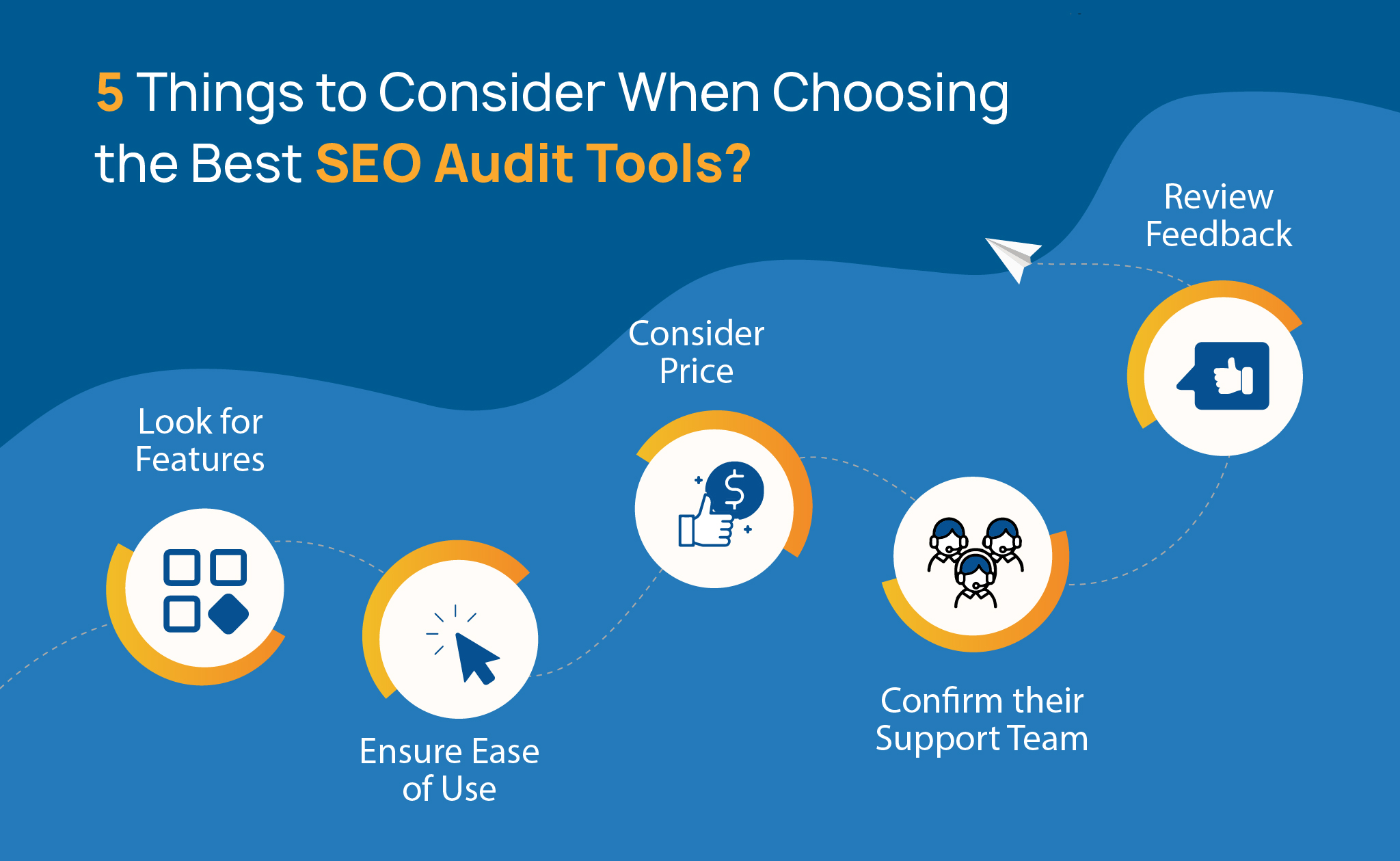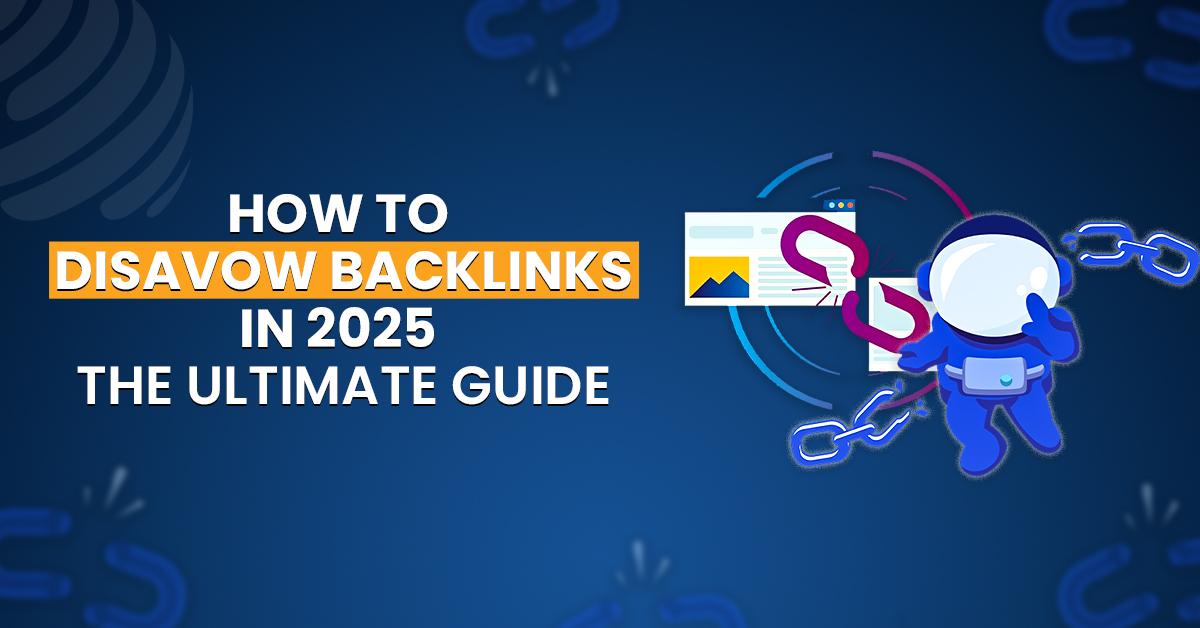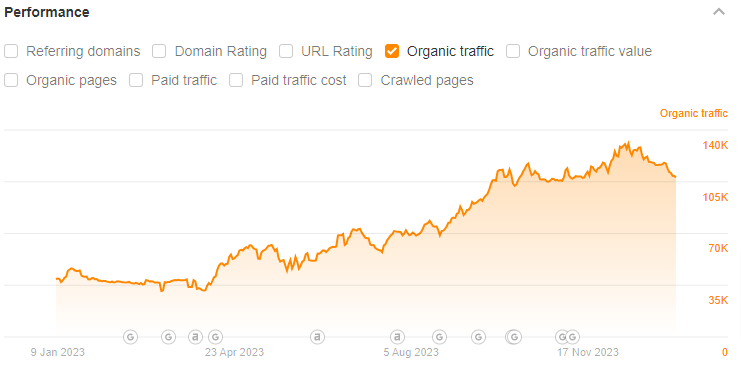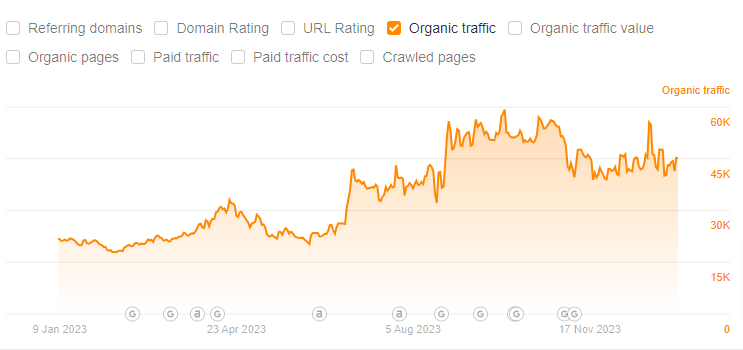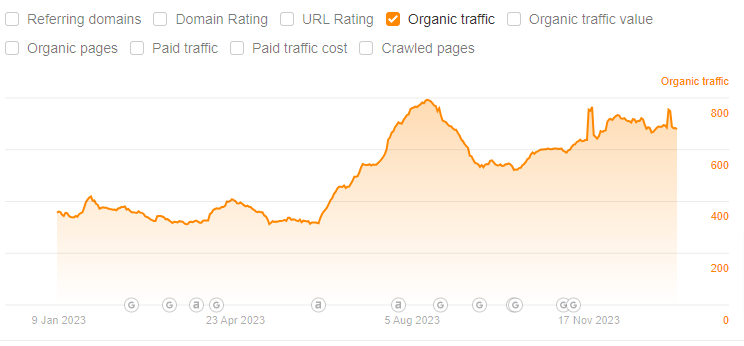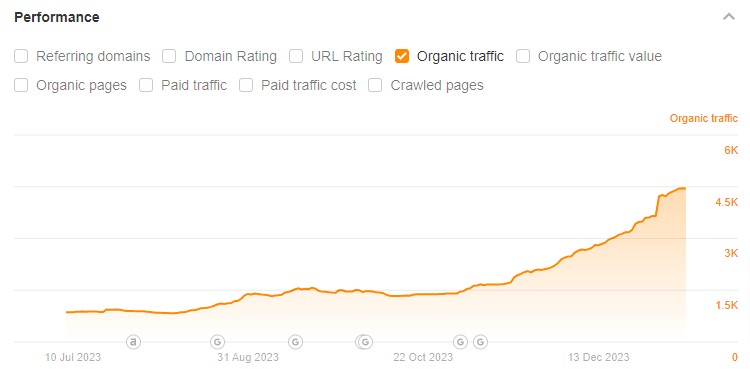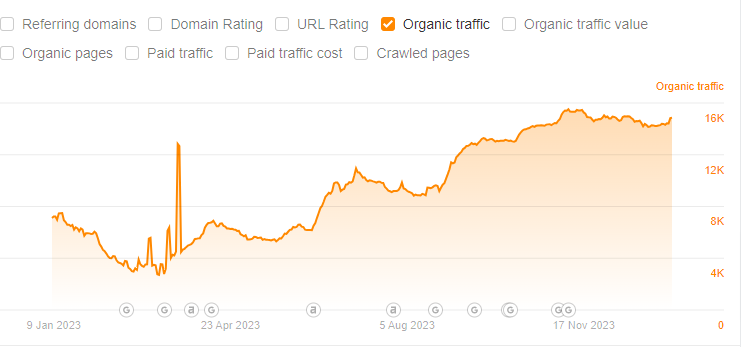Most humans get anxious about hearing the word “audit” as it’s a highly challenging endeavor. If you are an SEO expert, it might come to your mind that auditing is one of the actionable marketing insights.
Nowadays, the majority of digital marketers and SEO experts depend on tools that have the potential to give these insights. So, they can learn about many factors – such as what’s bringing traffic to a site, why content is ranking on the SERP, and how to improve your website performance.
As the SEO landscape is ever-changing – what worked yesterday may not work today. That’s why it’s best to stay up-to-date with the latest trends.
It’s time to shed light on some of the best SEO auditing tools, which can assist you in many ways – such as saving time and effort. By using them, you can perform detailed scans and offer recommendations to optimize your website. Let’s check out each of them individually.
30-Second Summary
SEO auditing tools – one of the much-needed resources to get one’s website to the best levels of performance. Google Search Console, Google Analytics, Google Page Speed Insights, SEMrush, Ahrefs, and Screaming Frog SEO Spider come with the best features and capabilities for identifying and rectifying all the site’s issues. Look at how you can choose the best SEO auditing tool.
-
Google Search Console
Google Search Console ranks as one of the best-performing tools that will help you improve your website efficiency. As a free-of-cost service offered by Google, it provides an ocean of insights and functionalities that can contribute to enhancing your site’s search results.
By leveraging this tool, you can monitor and troubleshoot different aspects of your website presence on Google SERP. The website’s performance in search results is thoroughly analyzed, with a focus on essential data like search queries driving traffic to the site, the number of impressions and clicks these queries generate, and the average position of the site in search results.
-
Google Analytics
Google Analytics is another effective yet free-of-cost tool for websites’ SEO auditing that will help you get insights about your website’s performance and its behavior.
This top-notch tool serves many purposes – such as tracking traffic sources, user demographics, and behavior flow. You can understand how visitors get to your website, what they do once they open the site, and which web pages are more engaging and solution-oriented.
The data obtained about these aspects can help you identify strengths and weaknesses in your website’s SEO performance, including content relevancy, keyword refining, and so on.
What’s more, Google Analytics can track goal conversions and e-commerce transactions so you can have a clear understanding of how SEO efforts can fulfill your business objectives. Not only that, but it will also become easier for you to measure ROI and modify strategies accordingly.
-
SEMrush
SEMrush’s Site Audit feature works the best when it comes to performing a detail-oriented website analysis and identifying the mandatory technical issues that can affect your site’s Google rankings.
It has the potential to look for common issues – which include crawlability issues, HTTPS implementation, page load speeds, international SEO, and more. To overcome these issues, it also generates detail-oriented reports with actionable solutions.
During site auditing, SEMrush’s On-Page Checker tools can contribute to conducting on-page SEO auditing. The content quality, header tags, meta descriptions, and title tags are analyzed to make sure that each page follows SEO best practices.
-
Google Page Speed Insights
Google PageSpeed Insights offers a feature that allows breaking down a webpage’s performance into specific metrics, including Largest Contentful Paint (LCP), Interaction to Next Paint (INP), and Cumulative Layout Shift (CLS).
Understanding how quickly a page loads and becomes interactive for users is crucial, and these metrics play a vital role in that.
The tool assesses Core Web Vitals, which are vital for measuring user experience aspects like loading speed, interactivity, and visual stability. PageSpeed Insights focuses on these metrics to pinpoint areas that require enhancements for improved overall page performance.
-
Ahrefs Site Audit
Ahrefs is the most powerful, authentic, and widely utilized SEO auditing tool due to its wide-ranging capabilities in terms of analyzing and skyrocketing a site’s search engine ranking.
The primary function of Ahrefs’ Site Audit feature is to conduct a thorough scan of a website, revealing crucial technical SEO issues that impact search visibility. This involves recognizing crawl errors, dead links, duplicate content, and pages that load slowly.
This best website auditor generates an all-inclusive report in which all these issues with their actionable solutions are mentioned. So, you’ll find it easier to fix the most prioritized problems first.
-
Screaming Frog SEO Spider
Screaming Frog SEO Spider is also one of the influential best technical seo tools, providing comprehensive technical details, URL structure analysis, XML sitemap generation, and integration with crucial analytics platforms.
This tool works as a website crawler that can scan websites of different sizes, niches, and complexities to find out SEO issues effortlessly. It can help you find broken links, assess page titles and meta descriptions, discover duplicate content, and examine response codes.
By issuing in-depth reports on these aspects, the tool assists in identifying and fixing problems that might have a detrimental effect on user experience and search engine visibility. For example, it can spot missing or excessively long meta tags, enabling you to enhance these crucial on-page elements.
5 Must-Follow Steps to Conduct Your Website’s SEO Auditing
Before exploring SEO auditing tools, you should know that there are various methods for conducting an audit. The process can be done manually or using specialized tools. Here are the steps to follow:
1- Check Your Website’s Health
First, check your website’s health. It involves assessing your website for common technical issues that could negatively impact your SEO.
Some of the things you should check for include broken links, duplicate content, and missing title tags and meta descriptions. Use a tool like Screaming Frog to help identify these issues.
2- Analyze Your Website’s Structure
Next, you need to analyze your website’s structure. It includes looking at your site architecture, URL structure, and internal linking. A well-structured website is more straightforward for search engines to crawl and index, leading to improved ranking.
3- Evaluate Your Website’s Content
Your website’s content is one of the most critical factors in SEO. Make sure that your content is high-quality, relevant, and keyword-rich. You should also assess your website’s existing content to see if any opportunities exist to improve it.
4- Assess Your Website’s Off-Page SEO
Off-page SEO refers to the factors that are outside your control, such as backlinks and social signals. These are necessary signals that help search engines determine the quality and relevancy of your website. Use SEO auditing tools like Moz’s Link Explorer to check the quality of your backlinks.
5- Monitor Your Progress
Once you’ve made changes to your website, it’s essential to monitor your progress. It involves regularly checking your website’s SEO health and performance. Use tools (Google Analytics and Search Console) to track your progress and see how your changes affect your ranking.
SEO auditing is an essential part of any good digital marketing strategy. By regularly auditing your website, you can track your progress and ensure that your SEO efforts are paying off. Follow the steps above to conduct an SEO audit and improve your website’s ranking today.
5 Things to Consider When Choosing the Best SEO Audit Tools?
Different types of website auditing tools are available on the web, each with its specialized set of features and capabilities. Some of them perform specific tasks – such as keyword research or link analysis. On the other hand, some offer more detail-oriented auditing reports.
When it comes to choosing the right SEO audit tool, you need to be mindful of several factors. Let’s have a look at them to make an informed decision in terms of choosing the best tool for your website’s SEO audit…
Factors to Consider When Choosing the Best SEO Audit Tools
1- Features: The first thing to keep in mind when opting for an SEO audit tool is what features you necessitate. Some tools offer all-inclusive coverage, while others are designed for specific tasks. You need to ensure that the tool you choose has the potential features to improve your website’s SEO.
2- Ease of use: Another significant thing to consider is how easy the tool is to use. Prioritize an easy-to-navigate tool so you won’t need to spend much time just navigating the tool.
3- Pricing: The third aspect to take into account is the cost. Various SEO audit tools are available with different price points. Choose a tool that aligns with your budget while providing the necessary features.
4- Support: The fourth factor to consider is exceptional support. In the event of any issues or queries, it’s essential to have access to support from the tool’s support team.
5- Reviews: Last but not least, the first factor that you must keep in mind is reviewing the feedback. Prior to making a purchase, it’s essential to review feedback on SEO audit tools to ensure they align with your requirements.
Closing Note
Once you get to know how the best SEO auditing tools can help businesses, no matter how big or small they are, assessing your website’s SEO performance and fixing the problems become a matter of minutes.
If you are running an online business and want to make your site perform at its best, keep track of all the aspects contributing to achieving your goals.
By leveraging the best seo site audit tools mentioned above, you can get an accurate picture of your website’s SEO health and make necessary changes to improve your Google Rankings.
————————
Frequently Asked Questions – FAQs
Q1 — Why Do SEO Auditing Tools Matter Most?
SEO site auditing tools enable SEO experts and digital marketers to keep track of all the aspects of their websites’ performance. By leveraging them, one can make necessary improvements to make the most out of their SEO efforts.
Q2 – In What Ways, SEO Auditing Tools Help You?
You can identify link-building opportunities, find potential information architecture improvements, identify thin & duplicate content, scan keyword optimization, and metadata, find out page updates, run page speed analytics, and so on.
Q3 – When You Require an SEO Auditing?
If you notice a decline in organic traffic, your site’s rankings, or your website isn’t giving results in relevant searches, you need to go for a comprehensive SEO audit. You can learn about the issues that affect the performance of your site architecture and provide actionable solutions.
Q4 – What Happens Once You Conduct an SEO Audit?
After an SEO audit, you’ll receive a comprehensive review of your website’s performance, covering technical, on-page, and off-page SEO, as well as content analysis and competitor insights. So you can address and rectify any errors or issues and improve your website’s overall performance.
Q5 – What Sets an SEO Analysis Apart from an SEO Audit?
An SEO analysis seeks to uncover ways to enhance your website’s search engine rankings. At the same time, an SEO audit aims to pinpoint obstacles holding your website back from reaching its maximum potential in search engines.


